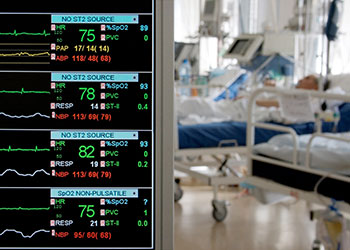
Data access has been approved for a research project to determine the genetic causes of systemic inflammation in patients in Intensive Care Units (ICU) after cardiac surgery.
A patient with a systemic inflammatory response (SIRS) may have a fever, high heart rate, increased respiratory rate, and high white blood cell count. For some, SIRS results in a longer ICU stay and when severe, it can lead to multiple organ failure - the primary cause of death in ICUs.
“Current evidence strongly suggests that individual patient genetic makeup (genotype) contributes substantially to individual outcome (phenotype) from inflammation and SIRS,” according to Dr Keith Walley, Professor and Director, Centre for Heart Lung Innovation at the University of British Columbia and St Paul’s Hospital. “The purpose of this study is to identify clinical, biochemical, and genetic predictors of occurrence, severity, and outcome of SIRS and test the hypothesis that there is an association between genotype and clinical phenotype.”
Data on long-term heart failure patients provides a unique opportunity to assess genetic risk in a group of subjects with known exposure to SIRS following coronary artery bypass graft surgery.
Dr Walley hopes that these results will help doctors to identify those patients at increased risk of developing SIRS, to enable earlier intervention and achieve better outcomes for the patient.
The project is funded by the Canadian Institutes of Health Research and Providence Health Care Research Institute.
PopData will link BC Ministry of Health data with researcher-collected data from St Paul’s Hospital accessed through Providence Health Care Sunrise Clinical Manager.